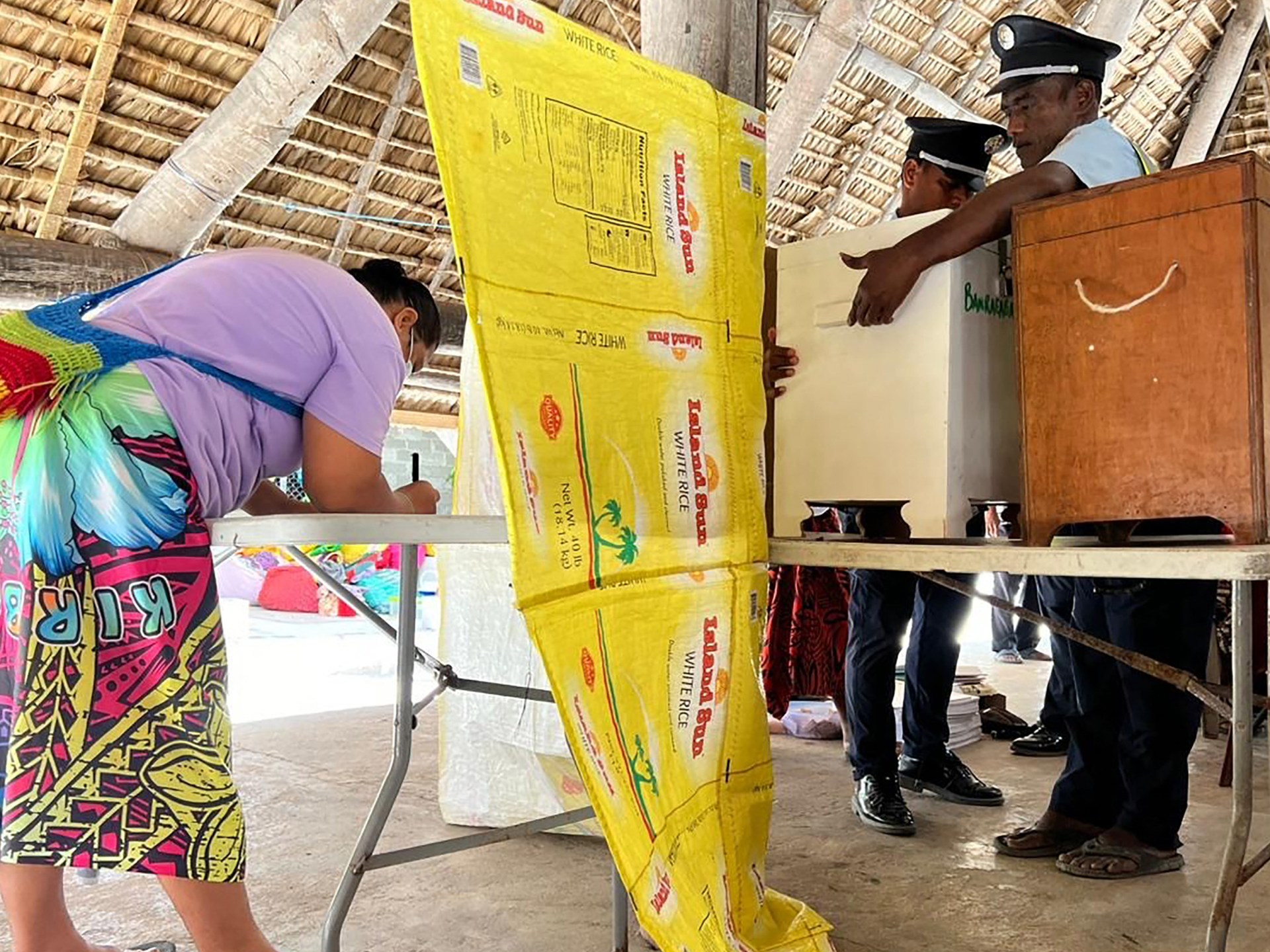China’s Influence in Kiribati: Past, Present, and Future
Five years ago, Kiribati’s decision to switch diplomatic allegiance from Taiwan to China sent shockwaves through the international community. The move, which came amid Beijing’s increasing efforts to isolate Taiwan, was seen as a major blow to Taipei’s dwindling number of diplomatic allies.
Domestically, the decision was also controversial, causing a rift within President Taneti Maamau’s own government and costing him his majority in parliament in a fiercely fought election in 2020. Senior figures in Kiribati, a low-lying atoll nation of about 130,000 people, feared a lack of transparency around Maamau’s relationship with China, which has previously formed debt-laden relationships with developing countries under its Belt and Road Initiative.
Parliamentary Elections and Presidential Stakes
Five years after the switch, as Kiribati heads to the polls again, those fears persist following a turbulent period which has seen strained relations with Pacific neighbours, tensions with traditional ally Australia, and a continuing constitutional crisis.
The parliamentary elections, held on July 19, were seen as a crucial test of Maamau’s popularity and a potential bellwether for the presidential elections later this year. While domestic issues such as the cost of living dominated the campaign, international observers also closely watched for any indication of the country’s future direction.
Banuera Berina, Maamau’s former ally and main opponent in the 2020 presidential election, told Al Jazeera that the relationship with China was “not healthy for the country.” Berina, who is standing again as a parliamentary candidate but not for the presidency, emphasized the need for transparency in government dealings.
China’s Interests and Regional Concerns
China’s interest in Kiribati is multifaceted. The country’s strategic location, just south of Honolulu on the United States island of Hawaii, makes it a potential security asset for Beijing. Additionally, Kiribati’s vast exclusive economic zone, covering more than 3.5 million square kilometers of the equatorial Pacific, is rich in fisheries and other natural resources.
As part of its development plan for Kiribati, China has promised to rebuild a World War II US military airstrip on Kanton Island, which sits roughly halfway between Hawaii and Fiji. In February, Reuters reported that Chinese police officers were working in Kiribati, raising concerns about Beijing’s security ambitions in the region.
Kiribati’s warming ties with China have come at the expense of its relationship with traditional ally Australia. Australian officials have reported that their visas have been denied or delayed, while a bilateral strategic partnership agreement has been put on ice indefinitely.
Democracy and Judicial Crisis
The past four years have also seen a deterioration in democratic norms in Kiribati. Maamau’s government has been accused of suppressing dissent and undermining the independence of the judiciary.
In May 2023, judge David Lambourne, an Australian national who served in Kiribati’s High Court, was forced out of the country following a years-long saga that threw the judiciary into crisis. Maamau’s government first levelled charges of misconduct against Lambourne in 2022. That year, attempts to deport Lambourne were deemed illegal by Kiribati’s Court of Appeal, composed of members of New Zealand’s judiciary.
Thwarted by expatriate judges, Maamau’s government suspended Chief Justice William Hastings and the Appeal Court judges, causing the country’s judicial system to grind to a halt.
Influence and Allegations
Despite the concerns raised by opposition figures and international observers, China denies that it interferes in the internal affairs of Pacific nations. And many experts argue that Beijing’s relationship with Kiribati is based on mutual economic and development interests.
However, some observers allege that Beijing is using its economic leverage to influence Kiribati’s domestic politics. Berina claims that he was offered money by China to retain his seat in parliament, while the anonymous source believes that campaign funds for certain candidates in the recent parliamentary elections originated from China and were funnelled through the president’s political party.
Outlook and Uncertainties
As Kiribati heads into the presidential elections later this year, the future of the country’s relationship with China remains uncertain. Maamau is seeking a third term, but his opponents are hoping to unseat him and reset Kiribati’s foreign policy.
The outcome of the election will have significant implications for the country’s future. If Maamau is re-elected, China’s influence in Kiribati is likely to continue to grow. If his opponents are successful, Kiribati may seek to re-establish ties with Taiwan or pursue a more balanced foreign policy.
The stakes are high for all parties involved. For China, a setback in Kiribati would be a blow to its ambitions in the Pacific region. For Australia, a loss of influence in Kiribati would further complicate its relations with Beijing. And for the people of Kiribati, the outcome of the election will determine the future of their country’s democracy and its relationship with the wider world.
